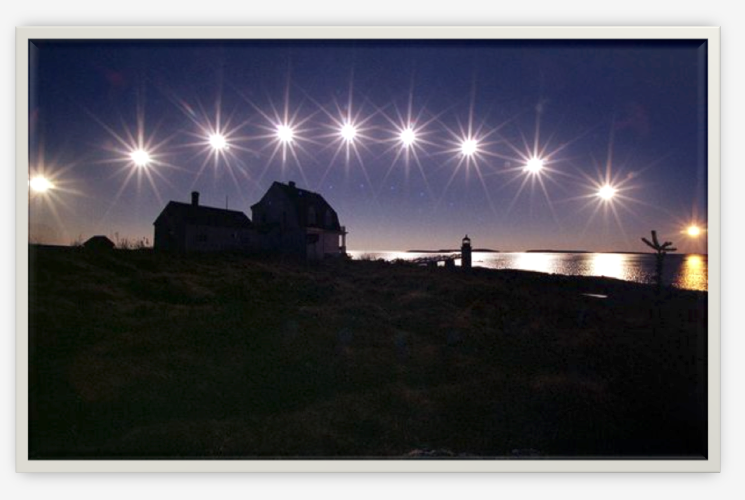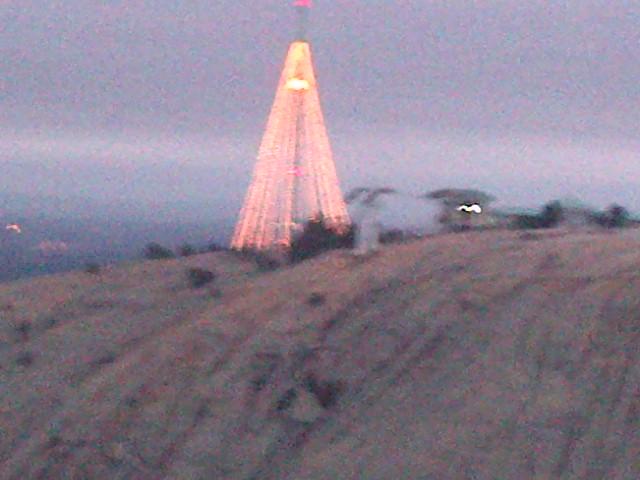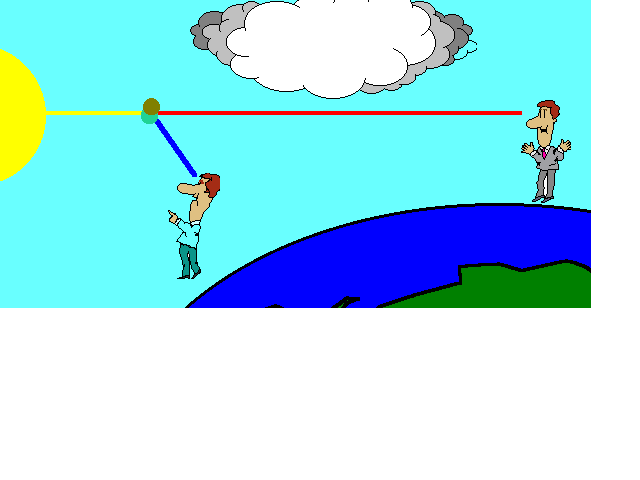Friday, December 28, 2012
Thursday, December 27, 2012
Ten Years of Blogging
Well, I let the 10th anniversary of this blog slide by as I forgot to mention it. So, as the year draws to a close maybe that's the second best time to mention it, 10 years and 102 days according to my Python computation. The first blog post to Monolith Daily (which was, indeed, my first blog post of any kind) was on 2002-09-16.
Actually I wrote about the history for the ninth anniversary.
Actually I wrote about the history for the ninth anniversary.
So Long, Gerry Anderson
Via @HNTweets
Gerry Anderson has died by Jamie Anderson.
My favorite supermarionation shows were Supercar and Fireball XL5. Of course I watched Space 1999 and UFO. I recall Thunderbirds, which seems to be so popular, but I don't remember watching it that much.
Anderson was responsible for one of my favorite sci fi space movies of the 60s, Journey to the Far Side of the Sun. The space walk scene with the music (theremin?) was quite beautiful, I always thought.
PC World's Top 10 Linux Distributions
Via @pcworld
Another year, another totally different top 10 Linux distros by Katherine Noyes.
- Linux Mint
- Mageia
- Ubuntu
- Fedora
- openSUSE
- Debian
- Arch Linux
- PCLinuxOS
- Zorin OS
- CentOS
Some Amazing Astronomical Images of 2012
Via @wired
I won't go as far as Wired's title, Best Space Photos of the Year 2012 in the article by Adam Mann, but these are amazing images.
For amazing astronomical images, one every day, see Astronomy Picture of the Day (APOD).
This image credit: ESO/B. Bailleul
Wednesday, December 26, 2012
Tuesday, December 25, 2012
Friday, December 21, 2012
Shortest Day of the Year
So is 2012-12-21 the shortest day of the year? The actual solstice occurs at different times in different years so I expect this varies. For this year, looking at the web site timeanddate.com (two d's), which I found via Google… (Sigh, the power just went out again!)
…It looks like it's actually 21 Dec, at least in Atlanta, GA. This snippet of their chart shows sun rise and set times, and the length of the day.
Happy Winter Solstice!
At 11:12 UTC, 6:12 EST, 3:12 PST.
Fri 2012-12-21 11:12:00 +0000
Fri 2012-12-21 06:12:00 -0500
Fri 2012-12-21 03:12:00 -0800
In the picture, the sun makes it lowest trek across the sky on the winter solstice. Winter officially begins.
Image credit: From NASA/NES Teachers Corner
Thursday, December 20, 2012
Friday, December 14, 2012
What Was My First Electronic Device?
On the Podcast Hypercritical on 5by5.tv John Siracusa was answering questions from listeners and one was something like, What was your first electronic device that had a big influence on you? I think the idea was to discover what maybe contributed to his interest in technology, computers, etc.
I wondered how I would answer this question myself. I was a bit taken aback by the realization that when I was really young, we practically had no electronic devices in our house. Of course we had a black and white TV. Also, by brother had built a stereo hifi system and that had a huge impact on me. It was a wonderful thing. Stereo was new, and it was rather amazing at the time. I still remember listening to one of his stereo demo records with trains and race cars zooming by.
We might have had a radio (I don't remember one from then) and that was probably it. There was nothing else in the house that would have qualified as electronic. (Hm, well my brother had his VOM meter).
But those were all tube-based devices. I don't think there was a single transistor in the house.
At some point when I was a kid I received a transistor radio followed by several others.
Of course there were battery powered toys but I don't think any of them had anything more fancy than DC motors and some incandescent lights. (LEDs were not on the market yet, at least for consumers).
The first electronic device I remember actually owning (other than the radios) was my first calculator, a Texas Instruments SR-51 (slide-rule with 51 functions). That was when I was a senior in high school. In high school physics and chemistry we used slide rules so having an electronic version with 10 digits of precision rather than three, was a wonderful thing!
Sadly the TI barely made it into my second year and was replaced with an HP-25 and then that was quickly traded for an HP-25C.
(Note: That image is an SR-51-II, a later version of my SR-51. I wasn't successful in finding an SR-51 image.)
Why is the Sky Blue?
via @HNTweets
Original by Philip Gibbs May 1997. From Physics FAQ.
Why not violet?
If shorter wavelengths are scattered most strongly, then there is a puzzle as to why the sky does not appear violet, the colour with the shortest visible wavelength.
The NoSQL Ecosystem
by Adam Marcus in The Architecture of Open Source Applications.
Unlike most of the other projects in this book, NoSQL is not a tool, but an ecosystem composed of several complimentary and competing tools. The tools branded with the NoSQL monicker provide an alternative to SQL-based relational database systems for storing data. To understand NoSQL, we have to understand the space of available tools, and see how the design of each one explores the space of data storage possibilities.
If you are considering using a NoSQL storage system, you should first understand the wide space of options that NoSQL systems span. NoSQL systems do away with many of the traditional comforts of relational database systems, and operations which were typically encapsulated behind the system boundary of a database are now left to application designers. This requires you to take on the hat of a systems architect, which requires a more in-depth understanding of how such systems are built.
Guido Van Rossum Left Google for Dropbox
From Forbes by Tomio Geron, Forbes Staff.
Dropbox Snags Google Exec And Python God Guido Van Rossum
Image credit: by Doc Searls via Wikipedia.
Wednesday, December 12, 2012
Sunday, December 02, 2012
See the Planet Mercury
Via @popastro. Society for Popular Astronomy.
Mercury reaches greatest western elongation on the 4th of December when it will rise about two hours before the Sun, shining at magnitude -0.5. Try to catch it for a few days around that date before it draws back towards the Sun again.
Venus is closing in on the Sun again too but still shining brilliantly at around magnitude -4 which makes it impossible to miss if you have a clear sky.
Saturn rises well before dawn at 4am at the start of December and nearly two hours earlier than that by the month’s end. Though much fainter than Venus, it is very bright at around magnitude 0.6. The planet’s spectacular rings are well open now making it a fine sight through a small telescope for early risers.
Image credit: Mercury, Venus and Saturn pictured on 2 December by Paul Sutherland
Taiwan engineers defeat limits of flash memory
by Nancy Owano at Phys.org. Via @physorg_com.
[Macronix] redesigned a flash memory chip to include onboard heaters to anneal small groups of memory cells. Applying a brief jolt of heat to a very restricted area within the chip (800 degrees C) returns the cell to a “good” state. They said that the process does not have to be run all that often. According to project member Hang‑Ting Lue, the annealing can be done infrequently and on one sector at a time while the device is inactive but still connected to the power source. It would not drain a cellphone battery, he added.
Macronix estimates that the flash memory cells could beat the 10,000 cycle limit by lasting for as much as for 100 million cycles
Subscribe to:
Comments (Atom)















